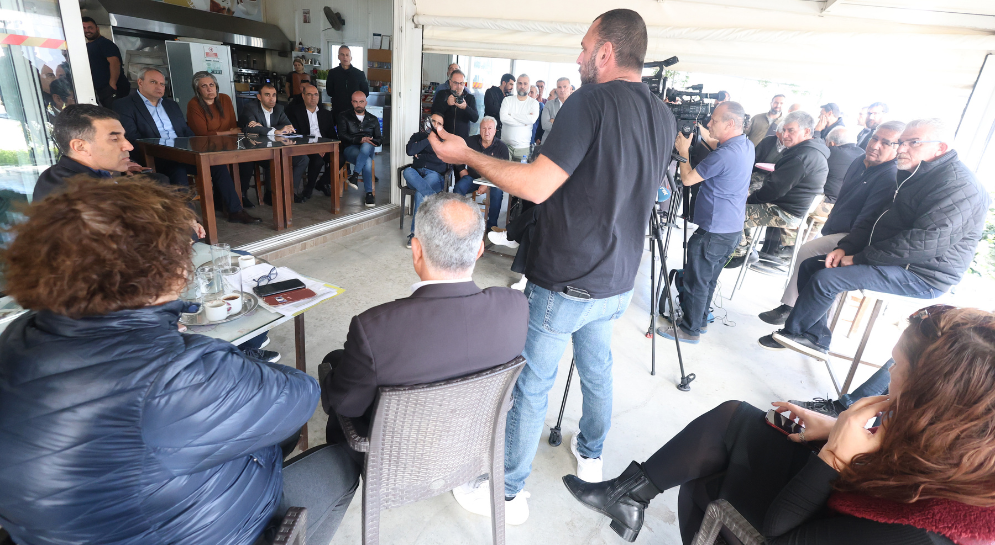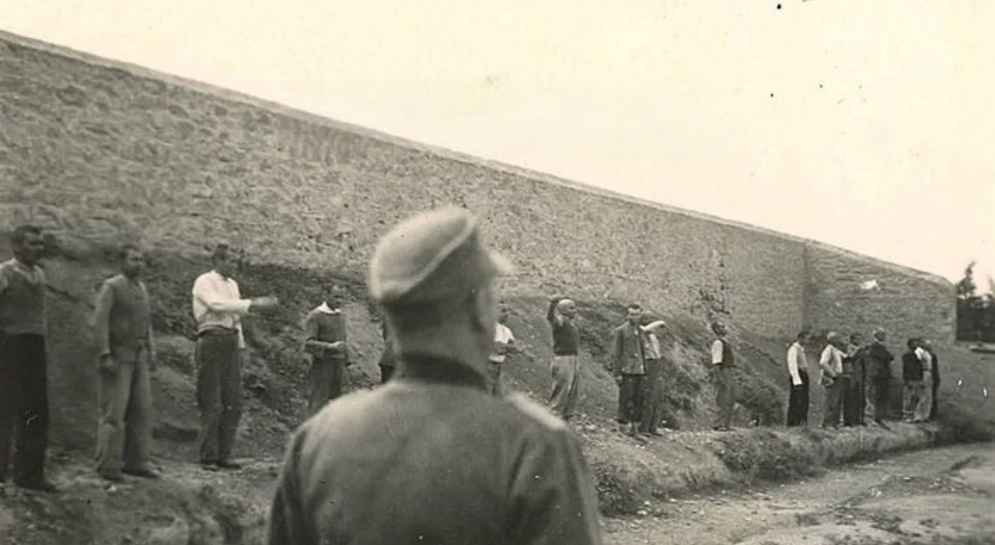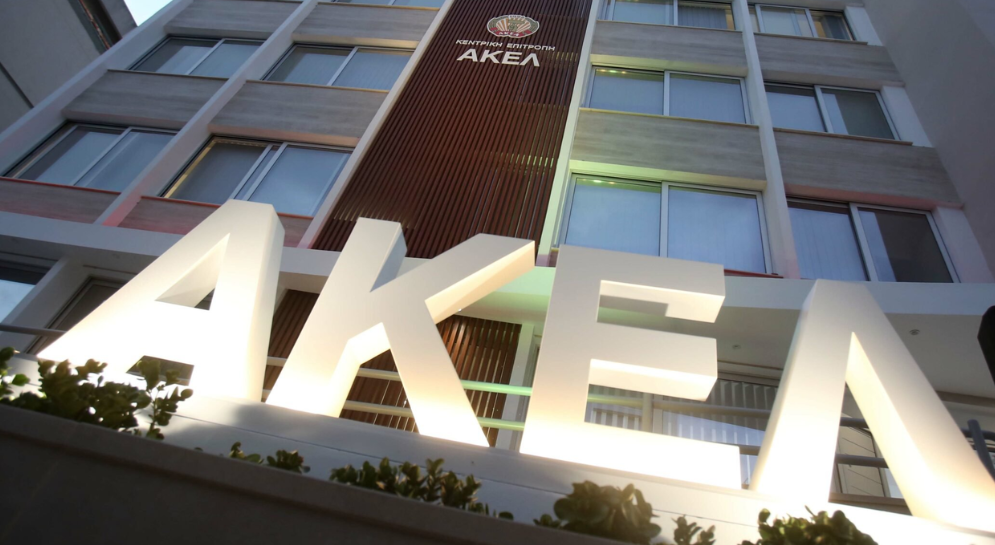
The General Secretary of AKEL A.Kyprianou replies to journalist’s questions at the press conference on the Cyprus problem
AKEL C.C. Press Office, 7th May 2021, Nicosia
Who is proposing and which convergences to be amended?
AK: If I had intended, I would have said so in my introductory speech. I have said in my intervention that I didn’t consider it appropriate to open this debate in public right now. Let’s discuss the issue later, depending on how things develop.
Is it crucially important?
AK: Certain issues are of critical importance.
Is it related to energy?
AK: Let’s discuss it at the right time.
If conditions remain as they are, does AKEL believe that the President should go to an informal/formal conference or not?
AK: If the situation remains as it is, I do not think the UN Secretary-General will proceed to convene a new informal conference. It would be a serious mistake to dare convene a new meeting if conditions haven’t changed.
He did so knowing the positions of Turkish Cypriot leader Mr. Tatar.
AK: There is a background to what happened. It is obvious to us that the EU, in its attempt to formulate a positive environment that would allow it to have a positive agenda with Turkey, has exerted pressure for this meeting to take place in Geneva. It turned out that the EU’s impression that it could influence Turkey to move it from its unacceptable demands was not the result of an objective analysis of the situation as Turkey insisted on its unacceptable demands.
The EU put pressure on the Secretary General of the UN?
AK: This is the information we have.
The EU didn’t even participate in the informal meeting….
AK: I ‘m telling you the information we have.
From whom; From Cypriot sources? From European sources?
AK: From European sources.
Mr. Tatar says that he was invited with his views well-known and that these views were listened to and submitted. What will become of the document submitted by Mr. Tatar?
AK: I think the UN Secretary-General’s reply was clear, namely that Mr. Tatar may have submitted views, but these were rejected and when something is rejected…
..Verbally
AK: Well, does the UN Secretary General need to reject something in writing? Don’t forget the resolutions, the relevant UN resolutions. The Secretary General clarified its position, it was clarified by the permanent members of the UN Security Council, it was clarified by the EU that a two state solution will never be accepted.
So we must work in this direction and not only that, as I said in my presentation, because it isn’t enough to prevent the attempt to impose a two state solution. We must create the preconditions to solve the Cyprus problem, because if the Cyprus problem isn’t solved on the correct basis, the issues will constantly resurface.
Mr. Guterres made the remarks in response to a reporter’s question. He said that to square the circle in politics is quite common. Does this have to do with what you said earlier in relation to the convergences?
AK: What I will say on this specific issue is that my interpretation is that the UN Secretary General says that the Cyprus problem is a very difficult problem. Similar problems like our problem however have been resolved in the past and so the Cyprus problem can be resolved too. From there onwards, we shall persist in our struggle. There are the relevant UN resolutions that determine what the framework of the solution is and as far as AKEL is concerned, we are not going to accept anything else, let me make that absolutely clear. We don’t care what anyone else says. We insist on the agreed framework of the solution, as set out by the relevant UN resolutions and the High-Level Agreements.
Why didn’t the UN Secretary General say it publicly in his statements that he rejects a two state solution?
AK: I have the impression that the position in the statement he made after the failure of the meeting was clear. It is clear that the Secretary General rejected a two state solution and rejected it before going to Geneva, in my view, because he clarified that he could not discuss anything other than what the relevant resolutions provide for, and that all he can do was if the two sides agree on something else to convey that to the UN Security Council and that they – if they want to – will change the framework. That’s what the UN Secretary General said. Things are simple, they are not that complicated and complex in my opinion.
What else can the President do when he expresses his commitment to the framework of the solution bearing in mind the positions and what is being proposed by the Turkish side for a two state solution? What can he do to help break the deadlock, taking into account that some forces/circles are pushing us to retreat from the convergences achieved?
AK: There is a prehistory, there are many people here in Cyprus who have said that Mr. Anastasiades spoke to them about a two state solution. Turkey has also said something similar, namely that the President also spoke about to them about a two state solution.
But he has publicly moved on from that.
AK: One minute, he has moved on publicly, but do you think that if you raise an issue, it is discussed for a while and indeed Turkey says that it did discuss it with you too, do you think that this issue can be removed from the negotiating table and that there won’t be any subsequent problems and consequences of such an approach?
First and foremost you lose your credibility and secondly you give the other person the right to tell you, “Since you yourself have raised the issue, regardless of whether you regret doing it, I’ll bring it back.” That is precisely why it is of great importance for Mr. Anastasiades – besides his verbal statement that he is ready to start discussions on the basis of the UN Secretary General’s Framework – to convince him of this readiness.
When President Anastasiades questions convergences agreed so far, when he challenges references of the very framework of the UN Secretary General, who clarified that effective participation and political equality must be discussed, the rotating presidency must be discussed and Mr. Anastasiades subsequently questions in public the right of the Turkish Cypriots to have a positive vote in the Ministerial Council, even saying that they cannot have this positive vote on natural gas issues because it is not one of the issues that concern them, do you the think the President of the Republic is persuasive when he says that we want to continue from where we had remained at Crans Montana?
We therefore want him to be convincing, we want him to send out a clear message that if the Cyprus problem is resolved then he is ready to discuss a number of issues that will be an incentive both for Turkey and the Turkish Cypriots to cooperate to reach a solution. When you have lost your credibility you have to be much more specific and much more credible in what you say.
The President made a reference to 97,000 Turkish Cypriots who applied and received passports of the Republic of Cyprus – and among them it turns out that Saner, Tatar and many others too – has provoked a discussion within the Turkish Cypriot community and a reaction that is summarized in the fact that “Anastasiades isn’t doing us a favor, it is our right”. Do you consider that so many thousands of Turkish Cypriots having a Republic of Cyprus passport or ID is something reprehensible (Note: reference to statements made by Turkish Cypriot leader Tatar)? Should they be ashamed? Is the fact that we are currently discussing this issue that has surfaced in the past creating some impressions?
AK: In our opinion, Mr. Anastasiades has very wrongly opened this issue. The Turkish Cypriots are citizens of the Republic of Cyprus. They are entitled to and they have the same rights as all the other citizens of the Republic of Cyprus. Successive governments have issued passports, because they were obliged to do so. Therefore, it is not a matter of doing a personal favour or anything else, as it is the duty of the Republic of Cyprus to issue passports to its citizens. Beyond that, the discussions taking place in the occupied areas, I think show the magnitude of the hypocrisy of certain Turkish Cypriot politicians like Mr. Tatar. I do not need to say anything more.
To be fair, because the impression is wrongly created against the Greek Cypriots, the President sought to point to Tatar, who is the one however who reacted to his fellow citizens acquiring passports of the Cyprus Republic. The President didn’t say that it was a mistake for the Turkish Cypriots to have a passport of the Republic of Cyprus…
AK: The President of the Republic should have clarified this.
With regards the initiatives with the Turkish Cypriots that AKEL will undertake. Why will they be assumed after the elections?
AK: You understand that we have 3 weeks to go until the parliamentary elections. There is in practice no possibility of doing any substantial actions. We had discussions in Geneva. We met and had a joint meeting with the Turkish Cypriot Republican Turkish Party (CTP) and the Communal Democracy Party (TDP). Immediately after the elections we will have discussions to see how we manage to reverse the unacceptable Turkish demand for a two-state solution. We shall decide how we cooperate with others too towards this end. Of course with Mr. Akinci and with smaller Turkish Cypriot political parties supporting the solution of bi-zonal, bi-communal federation. Our cooperation with them is imperative if we really want to forge a front of resistance to a two state solution.




